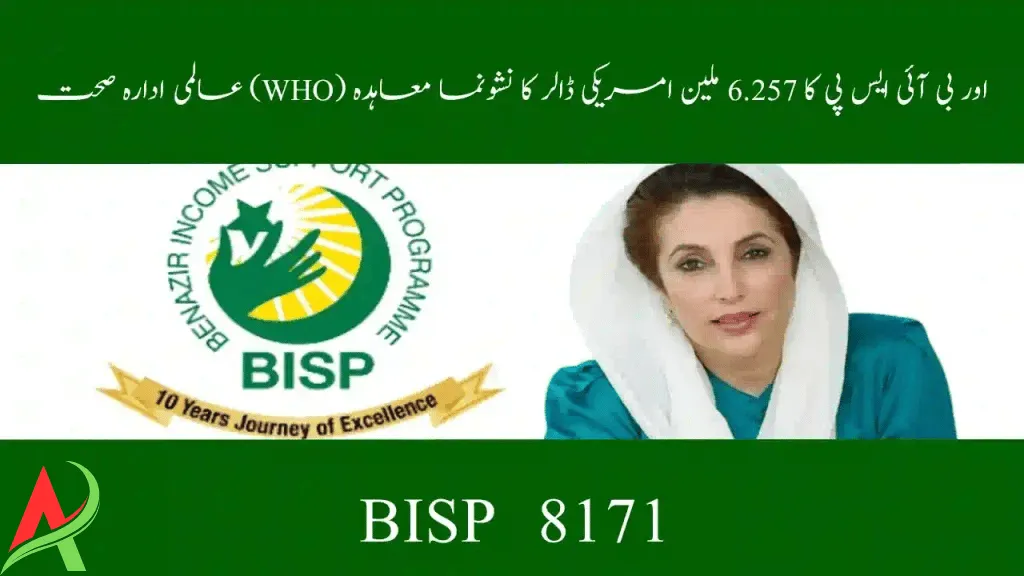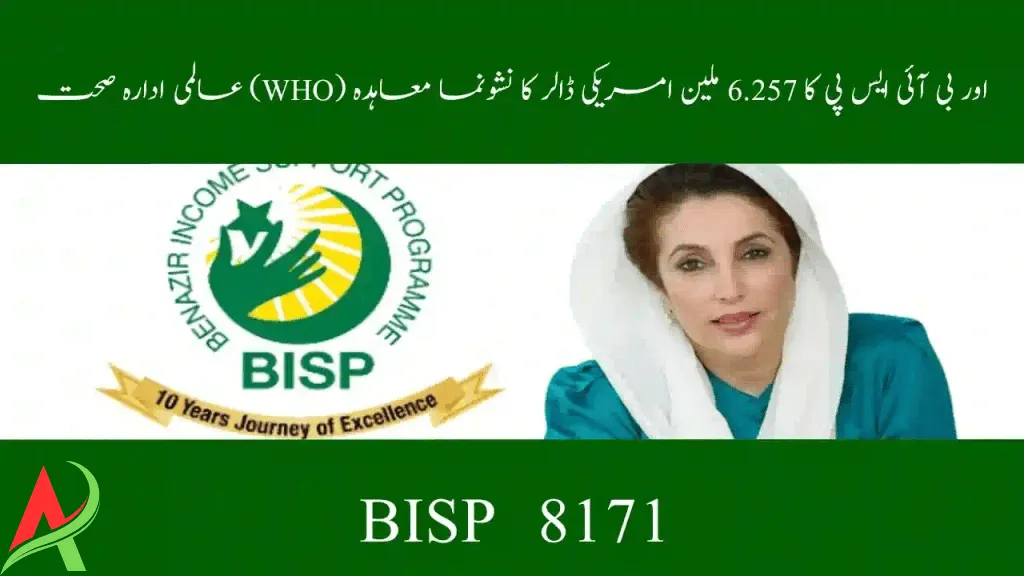The fight against malnutrition in Pakistan has reached a turning point with the signing of the WHO–BISP US$6.257 Million Nashonuma Agreement. This partnership between the World Health Organisation (WHO) and the Benazir Income Support Programme (BISP) aims to improve the health of mothers and children across the country.
For years, Pakistan has faced alarming rates of child stunting and maternal undernutrition. These problems not only affect health but also keep families trapped in cycles of poverty. By combining WHO’s expertise in global health with BISP’s strong national network, the Nashonuma Programme is now being expanded to provide nutrition, awareness, and medical support to millions of households.
This article explains what the Nashonuma Programme is, why the new funding matters, and how it will transform the lives of women and children in Pakistan.
Background: Malnutrition in Pakistan
Malnutrition remains one of Pakistan’s greatest public health challenges. Despite improvements in infrastructure and education, countless families still lack access to proper nutrition and healthcare. Poverty, lack of awareness, and limited medical facilities worsen the crisis.
- Stunting in children: Nearly 40% of children under five are stunted. This is not just about height; it impacts brain growth, learning ability, and long-term potential.
- Wasting: About 18% of children are wasted, dangerously underweight for their height, with higher risks of illness and death.
- Maternal undernutrition: Many women suffer from anaemia, iron deficiency, and inadequate diets, affecting their health and the development of their unborn children.
The Nashonuma Programme was launched to tackle these challenges, and the WHO–BISP partnership gives it new strength at the national level.
What is the Nashonuma Programme?
The word Nashonuma means “growth” in Urdu. This initiative focuses on the first 1,000 days of life—from conception until a child’s second birthday. This is known as the “golden window” in nutrition science because it shapes a child’s future health, development, and productivity.
Core Objectives of Nashonuma
- Provide nutritional supplements to mothers and children
- Promote breastfeeding and safe infant feeding practices
- Offer regular health check-ups for pregnant women and young children
- Distribute fortified food packages to prevent malnutrition
- Spread awareness about hygiene, diet, and child care
- Link nutrition services with BISP cash support to increase family participation
The program operates through Nashonuma Centres, where families receive both financial assistance and nutritional care, creating a holistic system that empowers communities.
Details of the WHO–BISP Agreement
The newly signed agreement amounts to US$6.257 million. This is not just emergency aid but a structured investment to expand and upgrade the Nashonuma Programme.
How the Funding Will Be Used
- Expansion of Nashonuma Centres: New centres in underserved districts
- Nutrition Support: Distribution of fortified food for mothers and children under two
- Training Health Workers: Building the skills of doctors, nurses, and community staff
- Digital Monitoring: Transparent systems to track funds and services
- Awareness Campaigns: Media and community outreach on diet, hygiene, and child care
This partnership ensures Pakistan’s fight against malnutrition is backed by international science, accountability, and long-term planning.
Why This Agreement is Important
The agreement is more than financial support—it is a lifeline for women and children.
- Tackling stunting: With nearly half of children facing growth issues, this directly addresses a national crisis.
- Supporting mothers: Better nutrition reduces pregnancy complications and ensures healthier children.
- Breaking poverty cycles: Healthy children perform better in school, earn more as adults, and lift families out of poverty.
- Global alignment: The program supports the UN Sustainable Development Goals (SDGs), especially Goal 2: Zero Hunger, and Goal 3: Good Health and Well-Being.
Benefits for Families
For Mothers
- Free health screenings during and after pregnancy
- Fortified food supplements to prevent anaemia and undernutrition
- Guidance on safe breastfeeding and child care
- Lower risks of maternal complications
For Children
- Access to fortified food to prevent stunting and wasting
- Regular growth monitoring and health check-ups
- Immunisations and timely treatment of illnesses
- Hygiene and diet awareness for caregivers
These services do more than reduce malnutrition—they create healthier families, communities, and a stronger Pakistan.
Role of WHO in the Partnership
WHO’s contribution goes beyond funding. Its role includes:
- Providing technical guidance and setting global nutrition standards
- Designing training modules for local health workers
- Supporting data collection and research for progress measurement
- Bringing credibility and coordination with international donors
Through this partnership, Pakistan gains not only funding but also global expertise and a sustainable health model.
Wider Social and Economic Impact
Nutrition impacts almost every aspect of society. By improving maternal and child nutrition, the WHO–BISP partnership will indirectly strengthen:
- Education: Healthy children perform better in school
- Economy: Families spend less on healthcare and save more
- Workforce: Stronger adults contribute productively to society
- Gender equality: Women gain better healthcare and decision-making power
The program thus becomes a catalyst for broader social and economic transformation.
Challenges and the Road Ahead
While this agreement is a major breakthrough, challenges still exist:
- Access to remote areas where health facilities are limited
- Cultural practices that resist modern nutrition advice
- Funding sustainability for long-term continuation
- Awareness gaps about hygiene and healthy diets
BISP and WHO are addressing these through digital monitoring, awareness drives, and local partnerships to ensure lasting success.
Frequently Asked Questions
What is the WHO–BISP Nashonuma Agreement?
It is a US$6.257 million partnership to strengthen maternal and child nutrition in Pakistan.
Who are the main beneficiaries?
Pregnant women, lactating mothers, and children under two years old.
How will the funds be used?
To expand Nashonuma Centres, provide fortified food, train workers, and improve monitoring.
Why is child nutrition such a big issue in Pakistan?
Nearly 40% of children are stunted, which affects health, learning, and earning potential.
Will rural areas benefit?
Yes, underserved districts and rural villages are a priority.
Conclusion
The WHO–BISP US$6.257 Million Nashonuma Agreement is a landmark achievement in Pakistan’s battle against malnutrition. It highlights the importance of investing in mothers and children, who form the foundation of national progress.
By improving nutrition during the critical first 1,000 days of life, Pakistan is shaping a healthier, stronger, and more prosperous generation. This partnership is not just about today—it is about securing dignity, opportunity, and growth for tomorrow.

